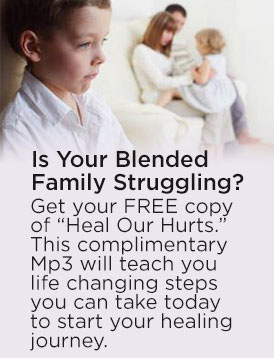With hardly any thought at all, you can probably say whether, in your family of origin, you played the role of the responsible one or the rebel, the people pleaser or the mascot. Roles serve an organizing function. In a family, roles sort out each person’s relationship to the group. While there’s nothing inherently wrong with roles, they become a problem when they’re rigid and shape poor choices as a teenager or adult.
Roles are especially harmful in families where abuse and/or addiction occur. They become a vain attempt to control a situation that is chaotic and frightening. Also, as John Bradshaw explains in On the Family, roles function to project the image of the happy family, preserving denial that anything is wrong.
Based on the work of Virginia Satir, Claudia Black and Sharon Wegscheider, below are the common roles that children play in the family, as well as that role’s impact on adult life.
The Hero
The hero is the responsible one. She/He gets good grades in school, is goal oriented and self-disciplined. From the outside, they appear on top of their game. Internally, however, the hero bears the burden of making the family look good. They also believe that if they are perfect enough, the family problems will go away.
Work: As an adult, the hero is often successful, reaching for excellence in their occupation. The trouble is, “excellent” is never good enough. If they are not at the top, they are nowhere.
Relationships: Whether as breadwinner or head of the household, the hero will take charge, needing to lead and be in control. This can create discord or inequality in relationship.
Self-esteem: Although a leader, the hero still relies upon the approval of others for their own self-worth. To be healthy, they need to realize that they don’t have to prove their worthiness and that life can be joyful regardless of achievement.
The Placater or People Pleaser
The placater tries to ease and prevent any trouble in the family. He/she is caring, compassionate, and sensitive. People pleasers deny their own needs, are anxious and hypervigilant.
Work: The placater will find themselves care-taking and facilitating in their work environment. They may be drawn to service occupations; however, in order to truly help others, they must face their need to please.
Relationships: The placater believes that if they take care of their partner that person will never leave. They may lose themselves in their partner’s needs, becoming more caregiver than equal.
Self-esteem: The people pleaser often feels that they have no value except for what they can do or be for another person. To be healthy, the placater needs to find their own value within.
The Scapegoat or Rebel
The scapegoat is the family member who is blamed for the trouble in the family. S/he acts out his/her anger at any family dysfunction and rebels by drawing negative attention to him/herself. While s/he is more in touch with his/her feelings than the other roles and is often creative, in school s/he gets poor grades and is often in trouble.
Work: No one expects much of the scapegoat and, too often, s/he agrees, choosing jobs that are beneath his/her abilities.
Relationships: The scapegoat will be drawn to friends and relationships that are certain to meet with parental disapproval. This will please him/her, despite the fact that his/her family may be right.
Self-esteem: While the scapegoat rebels against the family, rebels also internalize their poor opinion of themselves and thus fails to acknowledge their talents. S/he is a screw-up, s/he will say, proudly. To be healthy, s/he needs to realize that s/he’s much more than that.
Other Family Roles
The Mascot is the class clown with the uncanny ability to relieve stress and pain for others. But there’s something missing that s/he won’t find until s/he looks beneath the humor façade and faces his/her own pain.
The Lost Child is quiet, withdrawn, lonely, and depressed. S/he doesn’t draw attention to him/herself because s/he doesn’t want to be a burden. However, what s/he wants most is to be seen and loved, and to be healthy, s/he must allow herself to be visible.
Roles may have shaped our childhood but they need not keep us in chains. Acknowledging the gifts and detriments of the role or roles that you played as a child can help you honor yourself, as well as help you make wise choices as an adult.
Understanding your family of origin role and how it plays into your adult life can be a break through in awareness of how you continue to play your role today. If you are a parent, you can also begin to discern the roles your children are playing in the family and help them to make changes in how they interact with others at an earlier age.
Imagine the possibilities of family counseling in San Diego at The Center for Family Unity.








